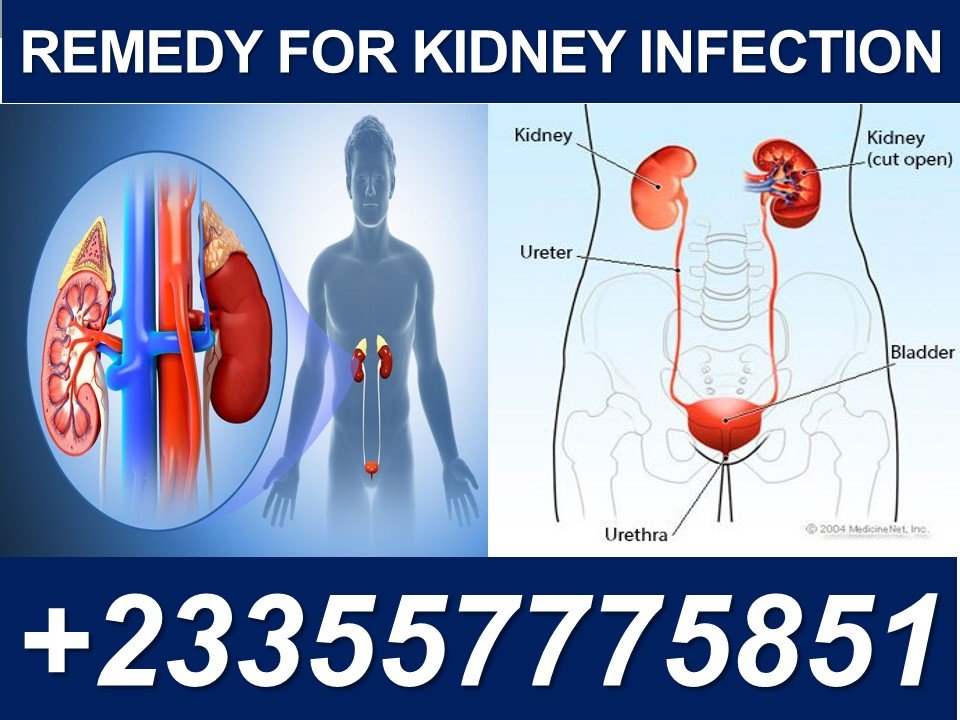Treatment for Kidney Infection, also known as renal infection or pyelonephritis, is a common type of urinary tract infection.
Bacteria often infect the bladder or the urethra and spreads to one of the kidneys.
To emphasize Women are most commonly affected by kidney infection, as are pregnant mothers, children under 2 years of age, and individuals aged over 60 years.
Kidney infections affect an estimated 3 to 4 men in every 10,000 and 15 to 17 in every 10,000 women.
Fast facts on kidney infections
Here are some key points about kidney infections. More detail and supporting information is in the main article.
- One of the kidney‘s major roles is to remove toxins from the body.
- Symptoms of kidney infections include diarrhea, nausea, and back pain.
- Sometimes, a bladder infection may occur at the same time as a kidney infection.
- In most cases, oral antibiotics can successfully treat kidney infections.
Symptoms
Women, the young, and the elderly are most at risk of kidney infections.
When someone has a kidney infection, it normally develops quite fast – in a day or a few hours. Symptoms of a kidney infection include:
- diarrhea
- nausea
- uncontrollable shivering
- vomiting
- back pain
- pain in the groin
- pain in the side
- often symptoms are worse when the patient urinates
If there is also a corresponding bladder infection, the individual may experience: Treatment for Kidney Infection
bloody urine
cloudy urine
pain or difficulty while urinating, often described as a burning or stinging sensation
foul-smelling urine
frequent urination
Likewise inability to urinate fully
pain in the lower abdomen
Kidney Infection Causes | Treatment For Kidney Infection
A kidney infection is caused by bacteria entering the urethra and reproducing in the bladder, triggering an infection. The infection then spreads to the kidneys. There are a number of ways in which the bacteria can achieve this:
Toilet hygiene: After going to the toilet and using toilet paper to clean the anus, there may be contact with the genitals, resulting in an infection getting through and working its way up to the kidneys. The infection could also enter via the anus. Bacteria occupy the colon and eventually cause a kidney infection.
Female physiology: Women are more vulnerable to bladder infections and ultimately kidney infections than men, because their urethra is shorter, making it easier for infections to reach parts of the urinary tract more quickly.
Urinary catheter: A urinary catheter is a tube that is inserted into the bladder through the urethra to drain out urine. Having a urinary catheter raises the risk of developing a urinary tract infection (UTI). This includes kidney infection.
Kidney stones: Individuals with kidney stones have a higher risk of developing kidney infection. Kidney stones are the result of a buildup of dissolved minerals on the inner lining of the kidneys.
Enlarged prostate: Males with an enlarged prostate have a higher risk of developing kidney infections.
Sexually active females: If sexual intercourse irritates the urethra there may be a higher risk of bacteria getting inside the urinary tract and eventually reaching the kidneys.
Weakened immune systems: Some patients with weakened immune systems may have a bacterial or fungal infection on their skin, which eventually gets into the bloodstream and attacks the kidneys.
Treatment for Kidney Infection | Kidney Cleanse Kit
The Kidney Detox Kit is designed to detoxify, flush and purge the kidneys of built-up toxins. Toxins accumulate and stones form when the kidneys aren’t functioning at normal efficiency. A Kidney Detox involves eating a healthy organic diet and drinking an organic, herbal kidney cleanse supplement for 2 to 3 weeks to stimulate the kidneys and soften any deposits. The Kidney Detox protocol also includes an intestinal cleanse with probiotic supplement which helps encourage a balanced internal environment to enable proper nutrient absorption.

























